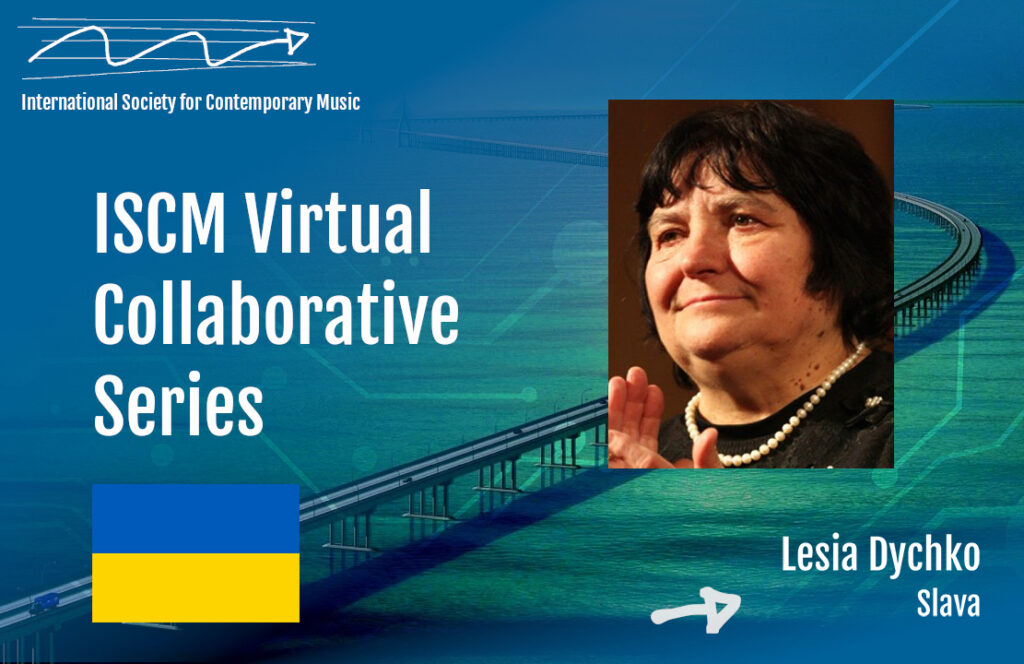Lesia Dychko: Slava

Lesia Dychko (b. 1939) is one of Ukraine’s most significant composers of choral music although she has created music is a wide range of idioms including two operas, four ballets, and numerous chamber works as well as the symphony Pryvitannia zhyttia (Welcoming Life) for soprano, bass, and chamber orchestra, based on the words of the imagist poet Bohdan Ihor Antonych, and Viter revoliutsii (Wind of the Revolution) based on the poetry of Maksym Rylshy and Pavlo Tychyna. She attained early recognition for her 1962 symphonic choral fantasy The Morning of the Rifle Execution, composed two years before she graduated from the Kyiv Conservatory where she studied composition with Boris Lyatoshynsky, the dean of Ukrainian composers. In 1994 she began teaching at the Conservatory, becoming a full professor in 2009. Associated with a group of composers known as “the Neofolkloric Wave,” Dychko has created numerous works inspired by Ukrainian history and folklore. Another important early work is the 1969 cantata Red Viburnum, based on texts of Ukrainian songs of the 15th-17th centuries, for choir, soloists and chamber orchestra. Among the most important choral works from her later years are the oratorio I will call the name Kyiv and The Words about Igor’s Regiment for soloists, choir, strings, and organ, which was composed for the 1500th anniversary of the city of Kyiv in 1982. One of the first Ukrainian composers in Soviet Ukraine to begin composing church music in the 1980s, Dychko has also composed three liturgies which are among the most significant milestones in her oeuvre.
Slava is a movement from the second of her liturgies, the Divine Liturgy of St. Chrysostom, which she completed in 1990.
performed by NOTUS (Contemporary Vocal Ensemble at IU)
The chorus performed this work as an act of solidarity with and support for the people of Ukraine.

ISCM
